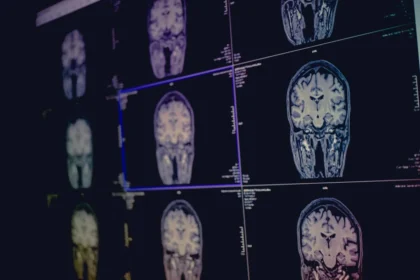
Court reporters and court transcriptionsits are an integral part of the justice system in Edmonton. The notes taken by the court reporters are transcribed by the transcriptionists. Let’s take a look at how they collaborate to keep the justice system operational.
Accurate recording of court proceedings is the key to delivering justice in the court of law. Each word spoken in the courtroom needs to be correctly recorded so that it helps judgment, settlements, or appeals. Legal professionals, such as court reporters and authorized transcriptionists, are there to record the court proceedings precisely.
In cities like Edmonton, professional court reporters often work individually, and they are certified by the provincial government. Law firms or individuals can contact them for their services.
First, let’s understand how court reporters play a crucial role in delivering justice.
Understanding the Role of Court Reporters
Court reporters in Edmonton play the role of silent observers and preserve justice in written form. They record each word spoken during a court trial, hearing, and legal deposition. They use stenographic machines or the latest digital recording technology to record court proceedings. They also convert live speech into flawless shorthand in real time.
Court reporters work under strict professional guidelines. As they are certified by the provincial government, they get the training to maintain confidentiality, impartiality, and speed. Using the shorthand technique or a stenographic machine, they can type approximately 200 words per minute with perfection. The transcripts they prepare can serve as an official legal document, which also forms the foundation for court appeals.
The Role of Authorized Transcriptionists in Legal Documentation
Once the reporters are done recording the court proceedings or trials, transcriptionists come into the scene. An authorized court transcriptionist uses the recordings and stenographic notes to convert them into a written document. The transcribed document can now be used in court as official evidence.
Lawyers and law firms often hire transcriptionists to get a written document of the court proceedings. Individual lawyers or small law firms that are unable to hire in-house transcriptionists go for outsourcing. Individual authorized transcriptionists can provide court proceedings in a written document after transcribing them from the audio record or stenographic notes.
Not only transcriptions, but they are also aware of the acceptable formats of the document in the court. Authorized court transcriptionists offer reliable documents with the correct format, using notes of the court reporters.
Collaboration Between Court Reporters and Authorised Transcriptionists
Now the question is how unauthorized code transcriptionists and a court reporter in Edmonton collaborate? Let’s dive in to understand the process.
Accuracy and verification of the truth are the core ideas connecting the job of a court reporter and a transcriptionist. The reporters capture the live dialogues; on the other hand, the transcriptionist refines them into a final document.
Let’s take a look at the process of how both professionals seamlessly get the job done:
- Recording and Data Transfer – During a court session, a reporter records the court proceedings and dialogues. After the session is over, all the recordings and stenographic notes are then transferred to an authorized transcriptionist. The reporters make sure that every spoken word is recorded correctly.
- Verification and Cross-Checking – An authorized court transcriptionist reviews the recorded materials and stenographic notes, verifies names, phrases, legal terminologies, and case references. This is a vital process for the next part of transcription. Without verifying the details of the case, the transcriptionist cannot finalize the document.
- Formatting and Certification – Finally, the authorized transcriptionist starts transcribing from the recorded court proceeding and stenographic notes. He also ensures that the final document is formatted according to accepted standards.
The seamless coordination between the court reporter and an authorized transcriptionist ensures that court proceedings are recorded correctly without omitting a single word or misinterpreting it.
Technology Bridging the Gap
The gap between the work of authorized court transcriptionists and court reporters in Edmonton can be bridged by technology. Real-time transcription software and digital court recording systems make the collaboration smoother than ever. Now you can use CaseViewNet, which allows transcriptionists to access stenographic feeds in real time. It reduces the time to prepare the official transcripts.
Moreover, reporters can prepare themselves to take notes of the court proceedings in real-time using Realtime Coach. It helps them to improve their skills, enhancing the quality and accuracy of their recorded notes.
To maintain data security, reporters use encrypted storage. On the other hand, transcriptionists might use AI-assisted editing tools to identify discrepancies in the final document. However, technology may not be a replacement for expertise, but it enhances the document quality and ensures a cleaner and faster preparation of the transcribed document.
Quality Assurance and Accuracy Checks
The court reporters and transcriptionists have to maintain quality and accuracy in their work. So, they rely on a multistep quality control process. Court reporters maintain word-for-word accuracy using verified recordings and personal annotations. Similarly, transcriptionists proofread their final document multiple times before the final submission.
Both professionals aim to achieve 100% accuracy and alignment between spoken and written records.
Why This Partnership Is Vital to the Legal System
The collaboration between an authorized court transcriptionist and a court reporter in Edmonton helps uphold justice. Their work is not merely words on paper. Judges, attorneys, and legal professionals rely on the documents prepared by court reporters and transcriptionists.
Imagine how a single misheard word would change an entire legal proceeding. So, the court reporters and transcriptionists must ensure precise and flawless transcription. A single error in the document can change the course of the justice system.
When these two professionals work in collaboration, they maintain transparency and accountability. Lawyers, clients, and the judiciary system know that the record has been verified, formatted, and checked by licensed professionals.
Trust Professionals Who Protect the Record of Truth
In the judicial system, each word matters when spoken during a trial or legal proceedings. Authorized transcriptionists and court reporters ensure that the transcribed document is flawless and accurate. You may say that it is not a mere job of transcription but preserving justice in written form.








